US-China Clash: Biden Vows To Activate ‘Iron Clad’ Mutual Defense Treaty To Thwart Beijing’s Aggression Against The Philippines
__________________________________________________________________________________
The Philippines' strategy of provocation - SHINE News
- The country was until 1946 an outright American colony, and it has been a treaty ally which has hosted a US military presence ever since.
- Through his father Ferdinand Marcos Sr, the current Ferdinand Marcos Jr represents the pro-US faction of the Philippines.
- He has placed the escalation of territorial disputes on the agenda again with the goal of using it to create negative publicity for China, pleasing the US, and therefore procuring more military support for Washington.
- It might be reminded that the biggest beneficiary of conflict in the South China Sea is the US, and the Philippines may need to understand the United States will use them as a proxy to initiate trouble, and then bear the costs of whatever may come next.
(The author, a postgraduate student of Chinese studies at Oxford University, is an English analyst on international relations. The views are his own.)
_____________________________________________________________
The Philippines has begun to build a runway, and navies from many countries have gathered. There is a profound meaning behind it.
Foreword In the South China Sea, a sea area surrounded by turbulent international situations, a series of thought-provoking events have recently occurred. Since the Philippines successfully replenished the warships sitting on the beach six days ago, the Philippines' actions have gradually become more and more aggressive. They are rapidly building military facilities on Thitu Island. What kind of tactics and considerations are hidden in the game behind this?
Self-deception and opportunism in the Philippines According to a notice issued by the Philippine Coast Guard on August 22, they officially announced that they had successfully completed the supply mission to Thitu Island. Then, the Philippine Coast Guard also accused the Chinese Coast Guard of intercepting and interfering during the supply mission. This accusation attracted the attention of the international community and heightened tensions in the South China Sea. But is this really the case?
In response to the notice issued by the Philippine Coast Guard, China stated that out of humanitarian considerations, it agreed to the Philippines transporting supplies and other necessary living materials to Thitu Island. China is willing to provide support to ensure that the basic living needs of the island residents are met. The Philippines, however, played some tricks in their announcement. They not only blurred the specifics of the items carried on the supply ship, but also specifically emphasized that the supply ship was "blocked" by the Chinese Coast Guard ship, giving the illusion that the Philippines successfully supplied by forcibly "breaking through" the Chinese blockade. . Such self-deception not only distorts the facts, but may also mislead the international community in judging the situation in the South China Sea. This behavior by the Philippines is not only inconsistent with the facts, but may also aggravate regional tensions and deepen differences and confrontations among all parties.
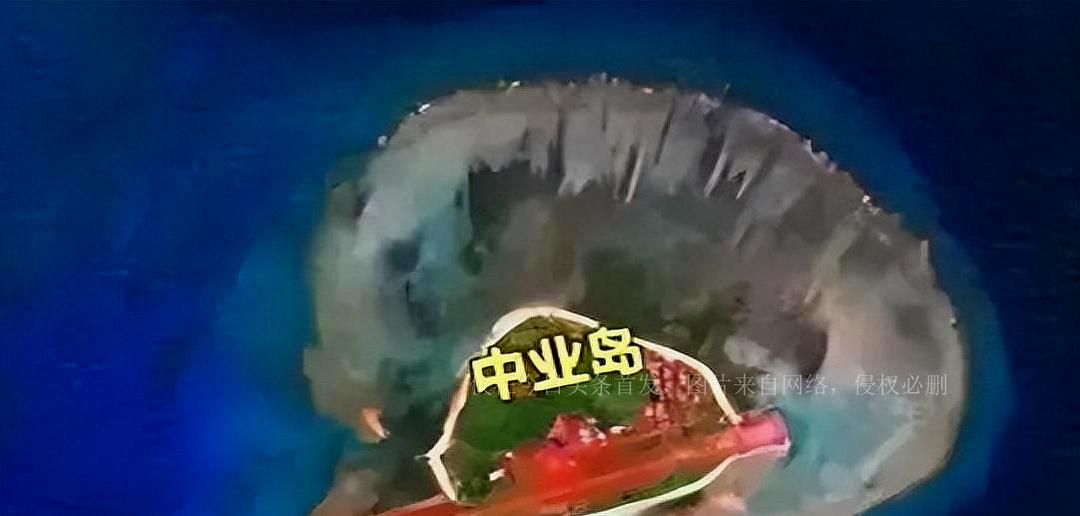
At the same time, the Philippines chose to start building a runway on Thitu Island before warships from the United States, Japan and other countries had yet to leave. This move showed that they were taking advantage of changes in the international situation to promote their strategic goals. This opportunistic strategy adopted by the Philippines may lead to further tensions in the South China Sea, which will not only have an impact on relations with China, but may also trigger greater instability throughout the region. Such an action could be viewed as a provocative act that could trigger a response and an impulse to take similar action from other concerned countries.
China has responded accordingly to the frequent petty moves made by the Philippines.
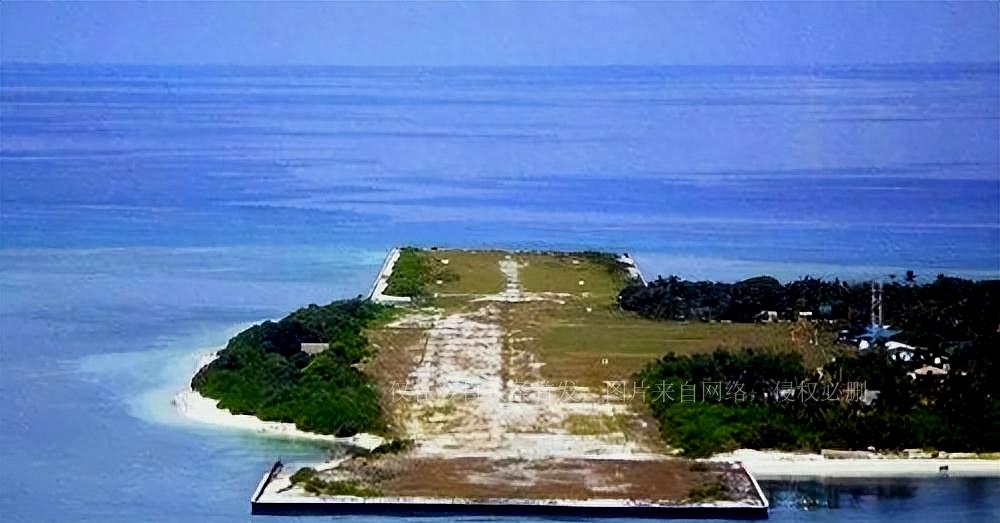
China's attitude has changed. In order to maintain security and stability in the South China Sea, China responded to the Philippines' actions and established a no-navigation zone. Although we don't know the specific details yet, the move is seen as a response to the Philippines' actions. China chose to conduct live-fire drills instead of just issuing verbal warnings, which shows that China is ready and will not be swayed by the Philippines' actions.
At the same time, China also issued a warning to the Philippines, reminding them not to be deceived by the United States and other countries and not to take risks on the South China Sea issue. In addition, the Chinese People's Liberation Army has once again demonstrated a firm attitude on the South China Sea issue, no longer just verbal warnings. This time, they chose practical action and carried out shooting exercises to declare their sovereign stance on the South China Sea. The change in attitude of the Chinese People's Liberation Army shows that China is no longer just passively dealing with the South China Sea issue, but has taken a more active stance and resolutely defended its rights and interests and territory. Through such practical actions, China has declared to the world its firm position on the South China Sea issue. This move emphasizes China's confidence and determination on the South China Sea issue, and also demonstrates to all parties China's determination to defend its core interests. China's change in attitude means that the South China Sea issue will no longer be a situation dominated by one party, but a complex issue that needs to be resolved through dialogue and consultation.
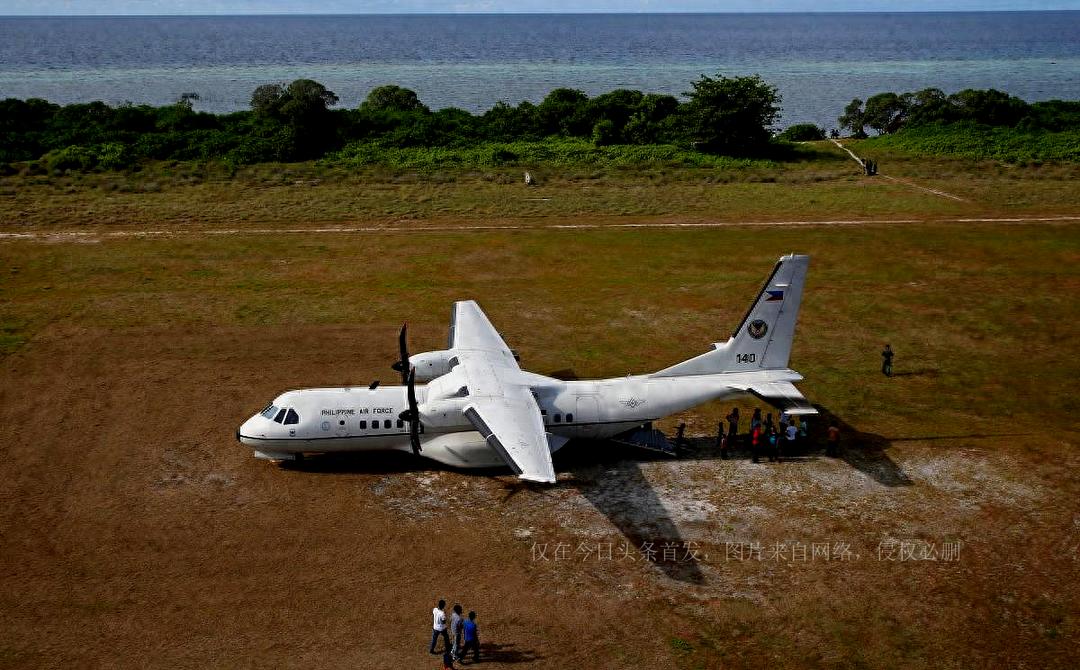
After the recent incident, the South China Sea region has once again become the focus of attention of the international community. While the United States and Japanese warships were stationed in the South China Sea, the Philippines secretly carried out upgrade projects at the Lancudo Airport on Thitu Island. The upgrade includes widening the runway to accommodate medium-sized transport aircraft and fighter jets. However, this action triggered serious geopolitical tensions. Thitu Island is the second largest island in China's Nansha Islands and belongs to China's inherent territory. It has been illegally occupied by the Philippines since 1971
Island, special forces have been stationed on the island, and large-scale military facility construction has been carried out many times, including the construction of airports.
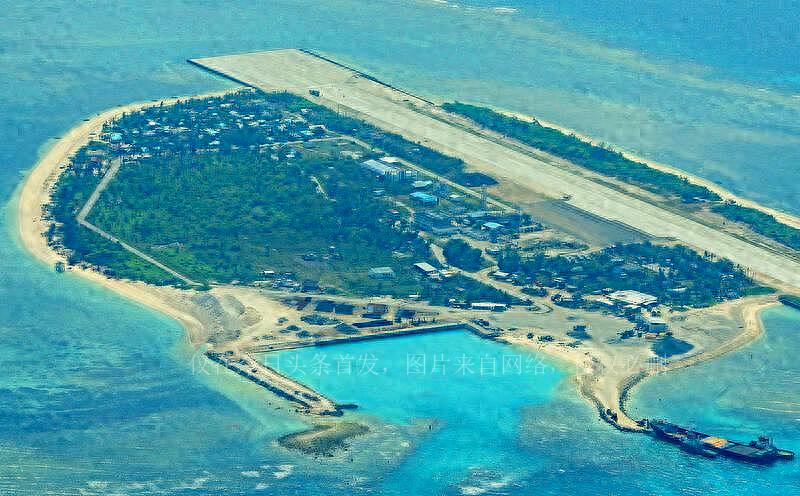
The Philippines has been illegally occupying Thitu Island and is determined not to give it up, mainly because there are rich oil and gas resources around the island. These resources are of important strategic value to the Philippines and can stably support its energy needs. After all, the seabed potential of Zhongye Island in the Nansha Islands is huge and contains abundant oil and natural gas resources. In particular, the oil and gas reserves around the Zengmu Shoal Basin are as high as more than 100 million tons. Although the Philippines covets these resources, Thitu Island, as China's inherent territory, cannot be changed after all. This public provocation by the Philippines undoubtedly gives China an opportunity to regain these islands.
There have always been complex disputes in the South China Sea, which not only involve territorial disputes between the Philippines and China, but also involve competition and cooperation among many countries. When it comes to resolving disputes in the South China Sea and maintaining regional stability and peace, all parties should resolve differences through dialogue and consultation based on the principles of objectivity, fairness and facts, rather than pursuing personal or national interests by misleading and distorting facts.
Tensions in the South China Sea pose challenges to regional and global stability. In this context, peace and cooperation become particularly important. All parties should insist on resolving disputes through dialogue and negotiation and avoid taking unilateral actions or creating tensions. Only through mutual respect, equal consultation and joint cooperation can long-term stability and sustainable development in the South China Sea region be achieved. The international community plays an important role in the South China Sea issue.
Conclusion Discussing humanitarianism with a jackal is like discussing skinning with a tiger. They stay on Chinese soil and refuse to leave. Why do we need to mention humanitarianism to them? We must resolutely defend our territorial sovereignty and take decisive actions to safeguard national interests and security. We should take strong measures to ensure that our rights and interests are not infringed upon those who infringe on our territory. When faced with this situation, we must stick to our principles, not be blinded by hypocrisy, remain vigilant, and respond decisively. The resolution of the South China Sea issue requires the joint efforts of all parties to seek consensus through dialogue and consultation based on the principles of fairness, justice and peace, and to achieve regional stability and prosperity. This is of vital importance to the international community and countries in the region. After all, the South China Sea is a common ocean, and its peace and stability are related to the common interests of all parties.
Inspiration:
There are complex geopolitical considerations behind the tensions and international disputes in the South China Sea. This series of events has provided us with several important revelations:
Geopolitical competition cannot be ignored: Geopolitical competition in the South China Sea is an issue that the international community cannot ignore. Different countries compete in the region for resources, territory and strategic interests, which can lead to tensions and conflicts. Therefore, all parties need to handle disputes with a calm and rational attitude and avoid taking radical actions to maintain regional peace and stability.
The importance of international law and dialogue: The key to resolving South China Sea disputes is to abide by international law and resolve differences through dialogue and consultation. The international community should jointly support the application of international law and encourage all parties to sit down and negotiate to resolve disputes, rather than taking unilateral actions or pursuing their own interests through misdirection.
Peace and cooperation are vital: Peace and cooperation in the South China Sea are vital to regional and global stability. All parties should emphasize mutual respect, equal consultation and joint cooperation to achieve long-term stability and sustainable development in the South China Sea region. Military provocations and tensions only exacerbate the problem rather than solving it.
Adhere to principles and safeguard national interests: When facing international disputes, countries should adhere to principles and defend their territorial sovereignty and national interests. At the same time, we need to take decisive actions to ensure that our rights and interests are not infringed, but we must also remain vigilant and not be deceived by hypocrisy to maintain national security.
Summarize:
Tensions in the South China Sea have attracted the attention of the international community and involve disputes and competition among multiple countries. The Philippines' upgrade project on Thitu Island and China's response highlight the complexity of the issue. From this we can draw the following important conclusions:
The geopolitics behind it: Geopolitical competition in the South China Sea is an issue that the international community cannot ignore. Tensions and conflicts may arise as different countries compete in the region for resources and strategic interests. All parties need to handle disputes rationally to maintain regional peace and stability.
The key to international law and dialogue: The key to resolving South China Sea disputes is to abide by international law and resolve differences through dialogue and consultation. The international community should encourage all parties to abide by international law in order to achieve the goal of peaceful settlement of disputes, rather than pursuing their own interests through misleading and radical actions.
Importance of peace and cooperation: Peace and cooperation in the South China Sea are vital to regional and global stability. All parties should adhere to mutual respect, equal consultation and joint cooperation to achieve long-term stability and sustainable development in the South China Sea region. Military provocations and tensions only exacerbate the problem rather than solving it.
Safeguard national interests and adhere to principles: In international disputes, countries should adhere to principles and defend their territorial sovereignty and national interests. At the same time, we need to take decisive actions to ensure that our rights and interests are not infringed, but we must also remain vigilant and not be deceived by hypocrisy to maintain national security. The stability of the South China Sea region is the common interest of the international community, and all parties should work together to maintain peace and security.
___________________________________________________________________________________
US-China Clash: Biden Vows To Activate ‘Iron Clad’ Mutual Defense Treaty To Thwart Beijing’s Aggression Against The Philippines
The frequent engagements between the Chinese and Filipino vessels in the contested South China Sea have triggered concerns that these tensions might snowball into an all-out confrontation. However, if that ever happens, the United States will defend Manila under its reinforced Mutual Defense Treaty.
In no ambiguous terms, he warned Beijing that the US would come to the Philippines’ support in case of an attack in the South China Sea (SCS). The warning comes days after a Chinese Coast Guard ship and an escorting vessel hit a Philippine Coast Guard (PCG) ship and a military-run supply boat off a shoal claimed by both parties.
Some Filipino officials told the media that if the PCG vessels had not quickly steered clear of the Chinese ships, the incident close to the disputed Second Thomas Shoal could have turned more serious.
According to claims made by Filipino officials, China has been trying to isolate a Philippine marine outpost near this shoal, which has also seen encounters between the two sides on previous occasions.
Wide-ranging territorial claims by China in the South China Sea, particularly those over islands close to the Philippine coast, have heightened regional tensions.
Biden’s recent statement was the most fierce and most vigorous. He said, “I want to be clear. I want to be very clear: The United States’ defense commitment to the Philippines is ironclad.
Biden said,” Any attack on the Filipino aircraft, vessels, or armed forces will invoke our Mutual Defense Treaty with the Philippines.” He made the statement in a speech in the White House on October 25, as he welcomed Australian Prime Minister Anthony Albanese.
- The US is a long-standing ally of the Philippines and has recently increased engagement with the Southeast Asian country, building on the tenets of their Mutual Defense Treaty (MDT).
- The MDT between the Philippines and the US was signed on August 30, 1951, in Washington, DC.
- A significant American presence remained in the Philippines even after its independence on July 4, 1946.
- The US kept up and ran the bases until 1991 and 1992, respectively. The Philippines has remained the most historic treaty partner of the US in Southeast Asia. The Mutual Defense Treaty, in essence, binds the US and the Philippines into defending each other in the event of an armed attack.
- Article 4 of the MDT reads, “Each Party recognizes that an armed attack in the Pacific area on either of the Parties would be dangerous to its peace and safety and declares that it would act to meet the common dangers by its constitutional processes.”
- Furthermore, Article 5 of the Treaty says, “An armed attack on either of the Parties is deemed to include an armed attack on the metropolitan territory of either of the Parties or the Island territories under its jurisdiction in the Pacific Ocean, its armed forces, public vessels or aircraft in the Pacific.”
During his US visit in May, Marcos and US President Joe Biden agreed to new guidelines on the countries’ 1951 Mutual Defense Treaty. The US reiterated that it would aid the Philippines in the event of an attack on it anywhere in the South China Sea.
- The guidelines also acknowledged the threats posed by “grey zone tactics” employed by China. I
- n return, the Philippines agreed to add four more military bases that the US could access.
The recent US condemnation of the Chinese aggression and its unconditional support to Manila comes with this renewed commitment to the MDT, which incidentally favors both partners against their common adversary in the region.
That Escalated Quickly!
The ambassador reassured its ally in the region by saying that Washington was standing by its partners to maintain an open and accessible Indo-Pacific area and to assist in defending Philippine sovereignty.
China, on its part, claims almost the entirety of the South China Sea and remains embroiled in territorial disputes with a host of other claimants, particularly the Southeast Asian countries. The encounters between Manila and Beijing have seen an uptick in recent times.
- The Chinese Coast Guard said that the Philippine vessels “trespassed” into what it said were Chinese waters “without authorization” despite repeated radio warnings, prompting its ships to stop them. It claimed that the collisions were caused by Philippine vessels.
- While the PCG contends that Philippine Coast Guard ships were traveling to deliver food and other supplies to the military outpost under a Chinese blockade, the Chinese officials have aggressively asserted that the Philippines ships carrying “illegal construction” supplies were being stopped.
By conducting dangerous maneuvers that caused collisions with Philippine resupply and Coast Guard ships, the PRC Coast Guard and maritime militia violated international law by intentionally interfering with the Philippine vessels’ exercise of high seas freedom of navigation.”
The Chinese, however, were quick to hit back at the United States for what they called a “sinister plan” to support Manila’s “infringement and provocation,” Global Times reported two days ago.
- A spokesperson of the Chinese Foreign Ministry, Mao Ning, said that the US statement goes against the spirit of international law.
With Biden issuing a blatant warning, the situation in the region could be expected to get grimmer than it already is.
- Contact the author at sakshi.tiwari9555(at)gmail.com
- Follow EurAsian Times on Google News
__

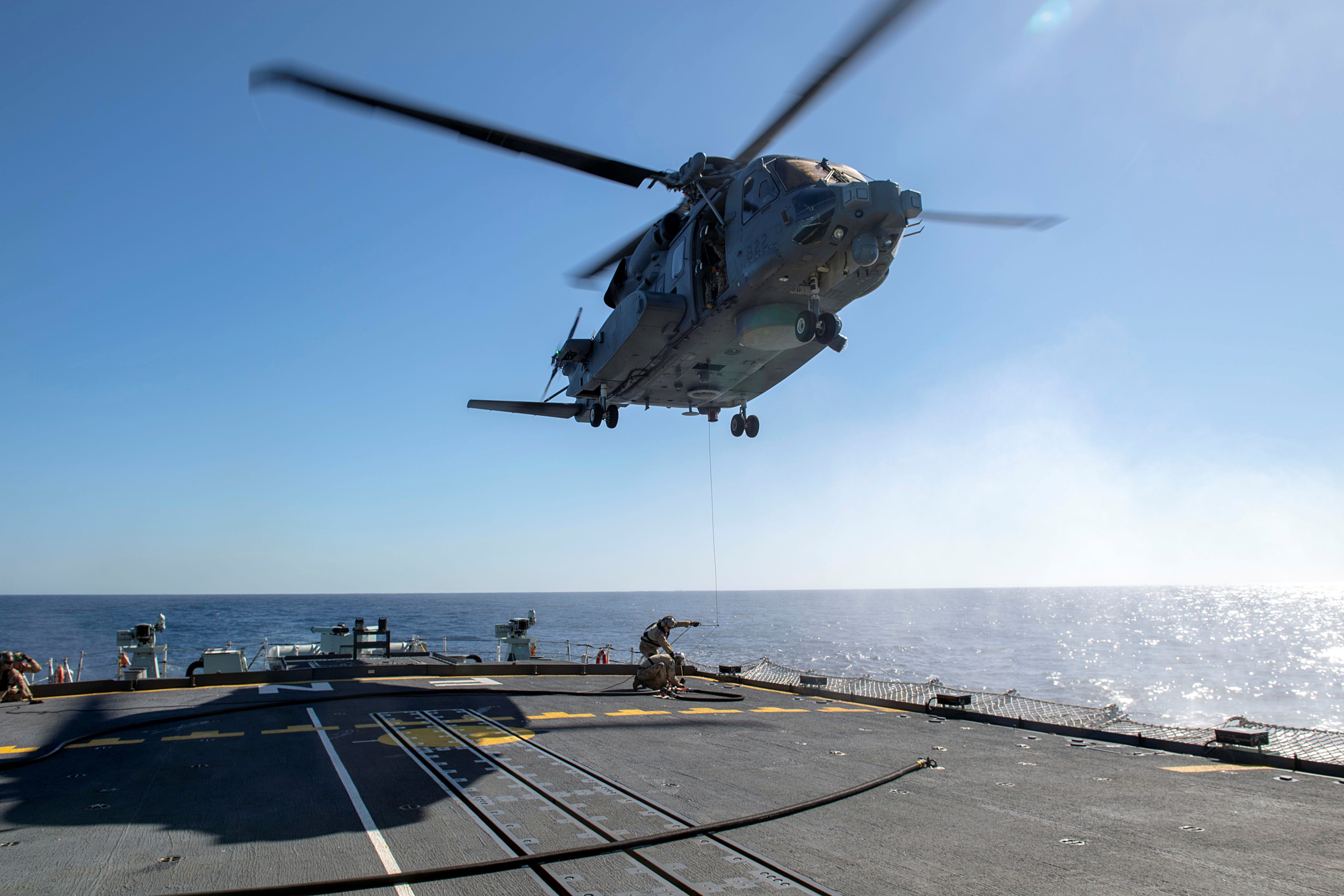
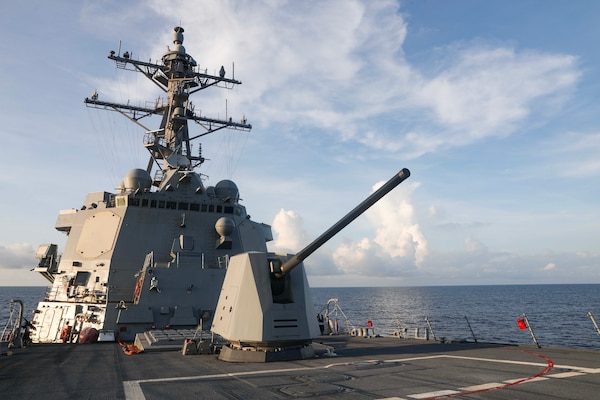




No comments:
Post a Comment